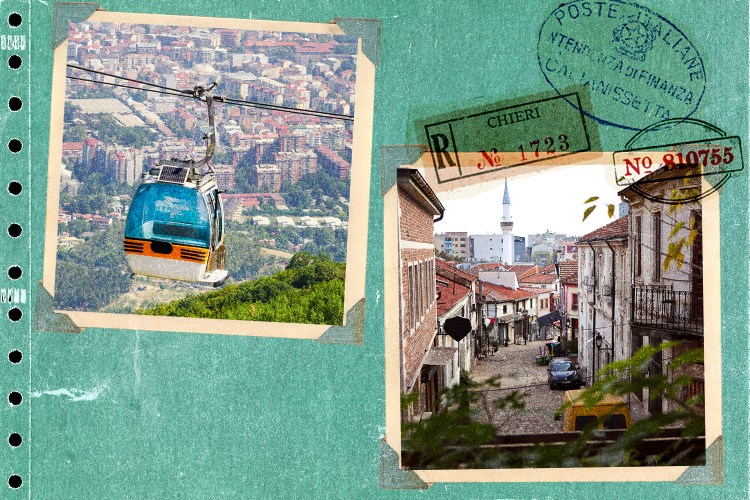In the cinematic re-telling of the near-catastrophic Apollo 13 mission, Flight Director Gene Kranz (played by an excellent Ed Harris) overhears two NASA directors discussing the low survival chances of the crippled spacecraft and crew. “This could be the greatest disaster NASA has ever experienced,” says one director, gravely. Turning to him, Kranz replies, “With all due respect, sir, I believe this is gonna be our finest hour.”
Whether or not these were Kranz’s actual words at the time, it’s a powerful moment — and one that resonates especially hard during this trying period. It’s easy to forget sometimes that human beings have a massive capacity for empathy and selflessness, and the amazing things we can accomplish when we pull together and consider the needs of others as much as our own.
So as we mobilize to our couches for Operation Stay the F*ck Home, we thought it would be nice to shine some light on ways we can help those who have been more drastically impacted by this crisis, whether financially, emotionally, professionally or in any other way possible. There are loads of ways to contribute, and your pals at InsideHook are firm believers in the positive psychological effects of helping other people. They feel good, you feel good, everybody wins.
Read on for a few ways you can chip in, and then join us for an afternoon libation if you’re so inclined.
Donate Money to Those Helping the Most Vulnerable
Large-scale crises have a particularly marked effect on communities that are already struggling or can’t fend for themselves, such as the elderly, the homeless or children in need. A donation to the charities that support those people means more now than ever, and several have put COVID-specific plans together.
- Meals on Wheels is safely delivering food to senior citizens who are unable to leave their homes as they are most at-risk for the coronavirus.
- Save the Children has put together a Coronavirus Response Fund to help ensure children (and their families) worldwide can continue to get access to healthcare, clean water and education during this trying time, as well to train health teams around the world to help prevent further spread of the disease.
- The Center for Disaster Philanthropy has also set up a response fund, with funds going to various nonprofits across different sectors working directly to address effects of the pandemic.
Support Small Businesses and Independent Workers
At this point it’s no secret that the hospitality industry is being hit especially hard, and we very much co-sign the purchase of gift certificates to help out your favorite places while they’re forced to remain shuttered. Restaurants and bars run on notoriously slim margins, and pre-paying for some food and booze you’ll enjoy down the line can really relieve some of the pressure on them. And if they’re offering it (and you’re comfortable with it), take them up on delivery and/or takeout options. Every dollar counts, and think of it this way: you’ll want them to still be there when the crisis subsides, correct?
Related
America’s Best Restaurants Are Now Relief Centers for Hospitality Workers
How to Support Bands That Had to Cancel Tours Due to COVID-19
Past that though, it’s also good to think of other similarly impacted vendors you can do the same thing for. Think people like your barber, your trainer, your tailor. Hell, your tattoo artist would no doubt be pumped on pre-payment for some ink later on, and your favorite indie band would massively appreciate a merch purchase or two while they can’t tour. Anyone who has rent to pay and can’t work is worthy of your consideration.
Support Your Less-Fortunate Friends
Similarly, it’s good to look out for the people in your direct orbit who have been impacted professionally. Anyone you know who depends on hourly wages, tips or in-person services is really feeling the squeeze right now, and it can’t hurt to reach out to them just to check in or offer a helping hand (be it financially or otherwise).
In addition to those whose livelihoods have been affected, now is also a good time to be extra mindful of anyone you know struggling with depression, anxiety or other mental health issues. Situations like this can be extraordinarily trying for them, and a little outreach can go a long way.
Join a Mutual Aid Network
In response to the crisis, Mutual Aid Networks have been springing up all over the country. For the uninitiated, a Mutual Aid Network is an ad-hoc community group in which members volunteer to assist neighbors in need — in this case, young and healthy folks bringing food and services to the elderly and immunocompromised. If you’re able/comfortable, a quick Google search should turn up efforts in your area you can get in on.
Be Aware of WIC Products at the Store
Recently, a grassroots political organizing group named Suit Up Maine posted a viral tweet alerting followers to the fact that certain items at grocery stores around the country are marked WIC to designate them as part of the USDA’s Special Supplemental Nutrition Program for Women, Infants and Children.
In short (and in their words), WIC “provides federal grants to states for supplemental foods, health care referrals, and nutrition education for low-income pregnant, breastfeeding, and non-breastfeeding postpartum women, and to infants and children up to age five who are found to be at nutritional risk.” Long story short, participants in the program are limited to WIC items in stores, and if those items sell out, they often have no alternative. So when stocking up, keep an eye out and grab a non-WIC brand if possible.
Donate Blood
Seems crazy in a time of social distancing, but it has been reported that the coronavirus crisis has led to a dire strain on the nation’s blood reserves — not because it’s being used for any COVID-19 treatment, but because it’s being used for normal medical reasons and not being replenished due to canceled drives and drastically decreased donor visits. It is essential that these reserves not run out, and the chief medical officer of biomedical services at the American Red Cross has been quoted in the New York Times as stating that the ARC is “already actively triaging units, determining which hospitals can and can’t get blood.” Not good. Things to know if you’re curious about and/or interested in donating:
- Blood centers are acutely cognizant of the need to ensure donor safety, and thus have instituted increased precautionary measures to minimize risk including temperature checks on staff and donors, stringent cleaning standards and maximum possible social spacing.
- Donating blood counts as an essential service, so even if your area is under a Shelter in Place or similar mandate, you can still donate.
- Places to donate can be found here, here and here.
Support Brands That Are Treating Their Employees Well
In a time of drastically reduced profits, market uncertainty, etc., it’s very easy for larger companies to prioritize their bottom lines and shareholders over their employees. A great many brands, however, have gone out of their way to take care of their workers during the pandemic, continuing to pay store workers wages and benefits during periods of closure.
Forbes has compiled not only a comprehensive list of store closures complete with info on which companies are still paying workers, but also a list of companies going the extra mile to do some added good during the crisis. Read up and consider supporting the folks who elected to support others in a time of need. These are the brands we want to stick around.
Donate Your Leftover Non-Perishables
Stocking up is well and good, but chances are a great many of us will (hopefully) be looking at a certain amount of leftover rice, pasta, canned goods, etc. once the crisis subsides. When that wonderful time finally arrives, consider donating your surplus to the less fortunate via your local food bank or other charitable organization.
Stay safe, wash your hands and remember: if everybody does a little, nobody has to do a lot.
The Charge will help you move better, think clearer and stay in the game longer. Subscribe to our wellness newsletter today.

























